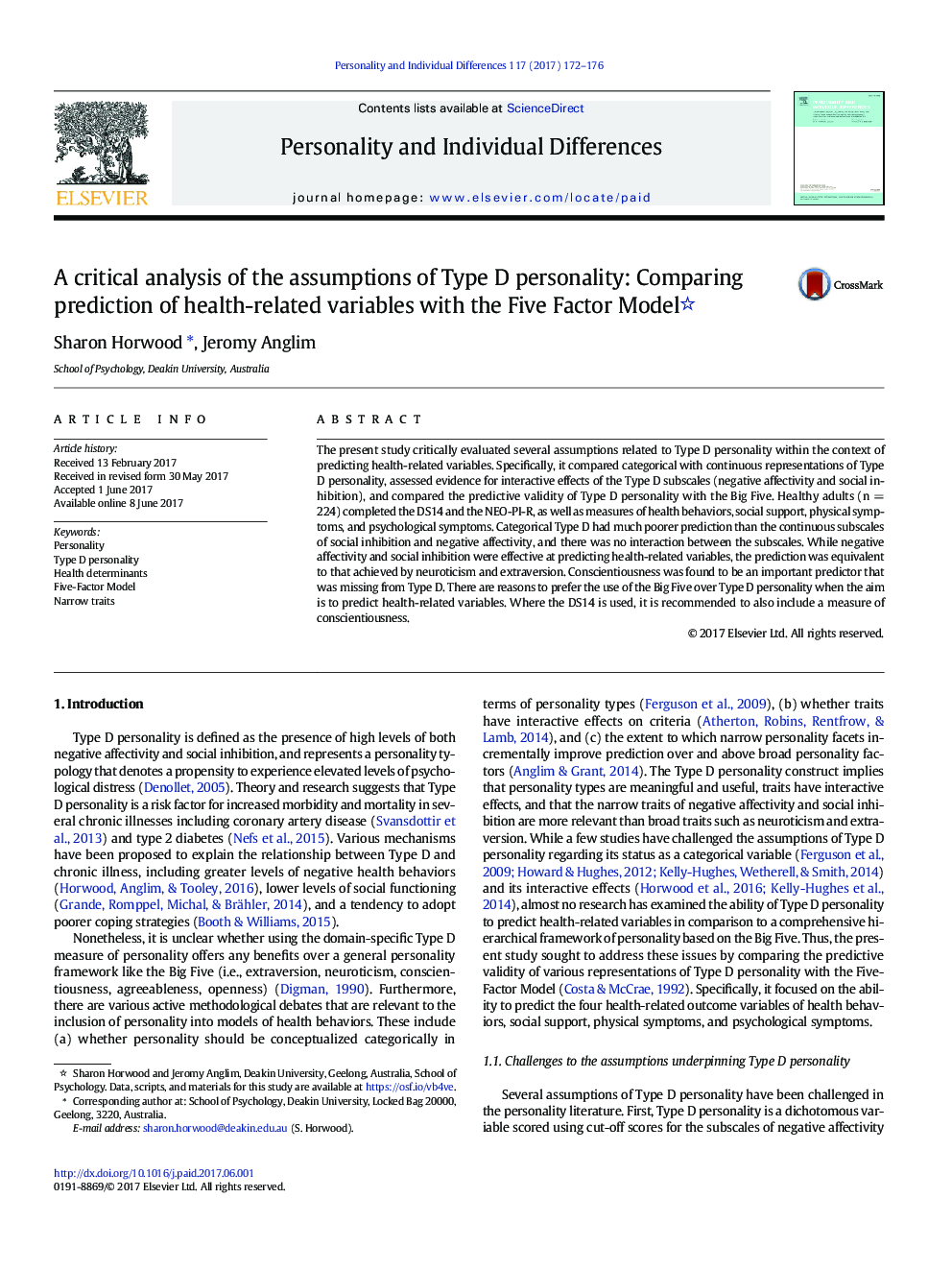| Article ID | Journal | Published Year | Pages | File Type |
|---|---|---|---|---|
| 5035992 | Personality and Individual Differences | 2017 | 5 Pages |
â¢Categorical Type D is a poor predictor compared to the continuous subscales of Type D.â¢Conscientiousness predicts health behavior over and above Type D personality.â¢The Big Five predicts health-related variables better than Type D personality.
The present study critically evaluated several assumptions related to Type D personality within the context of predicting health-related variables. Specifically, it compared categorical with continuous representations of Type D personality, assessed evidence for interactive effects of the Type D subscales (negative affectivity and social inhibition), and compared the predictive validity of Type D personality with the Big Five. Healthy adults (n = 224) completed the DS14 and the NEO-PI-R, as well as measures of health behaviors, social support, physical symptoms, and psychological symptoms. Categorical Type D had much poorer prediction than the continuous subscales of social inhibition and negative affectivity, and there was no interaction between the subscales. While negative affectivity and social inhibition were effective at predicting health-related variables, the prediction was equivalent to that achieved by neuroticism and extraversion. Conscientiousness was found to be an important predictor that was missing from Type D. There are reasons to prefer the use of the Big Five over Type D personality when the aim is to predict health-related variables. Where the DS14 is used, it is recommended to also include a measure of conscientiousness.
